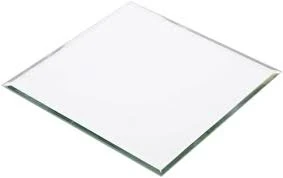

Understanding Soft Coat Low E Glass A Comprehensive Guide
In today’s world, energy efficiency and sustainability are paramount considerations in architectural design, making innovative glass technologies more relevant than ever. One such technology is Soft Coat Low E Glass, an advanced glazing solution that offers numerous benefits for residential and commercial buildings alike.
What is Soft Coat Low E Glass?
Soft Coat Low E (Low Emissivity) Glass is a type of glass that has been treated with a microscopically thin layer of metal oxide. This coating significantly enhances the glass's thermal performance by reflecting infrared radiation while allowing visible light to pass through. It is referred to as soft coat because this metallic layer is applied in a controlled environment, leading to a more uniform, high-performance surface compared to hard coat Low E glass, which is treated at high temperatures and therefore has different characteristics.
The Benefits of Soft Coat Low E Glass
1. Energy Efficiency One of the key advantages of Soft Coat Low E Glass is its ability to reduce energy consumption. By reflecting heat back into the building during winter and blocking excessive heat from entering in summer, this glass helps maintain a comfortable indoor temperature, thereby reducing reliance on heating and cooling systems.
2. UV Protection Soft Coat Low E Glass effectively blocks up to 99% of harmful ultraviolet (UV) rays. This not only protects occupants from potential skin damage but also minimizes fading of furnishings, artwork, and flooring, extending their lifespan and maintaining aesthetic appeal.
3. Improved Comfort By minimizing drafts and temperature fluctuations, Soft Coat Low E Glass significantly enhances indoor comfort. The even distribution of temperature within a space ensures a cozy environment, making it perfect for homes and commercial properties.

4. Condensation Resistance The insulating properties of Soft Coat Low E Glass help reduce condensation on interior surfaces. This not only prevents potential mold growth but also improves indoor air quality, contributing to a healthier living or working environment.
5. Aesthetic Appeal Soft Coat Low E Glass is available in various styles and finishes, allowing architects and designers to create visually appealing structures without compromising energy efficiency. Its ability to provide clear views while controlling glare makes it a preferred choice for modern architectural designs.
6. LEED Certification For those seeking sustainability certifications, incorporating Soft Coat Low E Glass can contribute to achieving LEED (Leadership in Energy and Environmental Design) points. This is particularly beneficial for commercial projects aiming for recognition in eco-friendly building practices.
Installation and Maintenance
While the benefits of Soft Coat Low E Glass are evident, proper installation is crucial for maximizing its efficiency. Engaging professional glazing experts ensures that the glass is fitted correctly, as any gaps or improper sealing can significantly reduce its performance.
In terms of maintenance, Soft Coat Low E Glass is relatively low-maintenance. Regular cleaning with non-abrasive cleaners is sufficient to keep the glass clear and maximize its light transmission properties. It is essential to avoid using harsh chemicals or abrasive materials to prevent damaging the coating.
Conclusion
In summary, Soft Coat Low E Glass is a remarkable innovation that provides numerous advantages in energy efficiency, comfort, and aesthetics. As the demand for sustainable building practices grows, understanding and utilizing technologies like Soft Coat Low E Glass becomes essential for architects, builders, and homeowners alike. By choosing this advanced glazing option, we can contribute to a more energy-efficient, environmentally friendly future. Whether you’re redesigning an old space or building new, considering Soft Coat Low E Glass can make a significant impact on both performance and appeal.